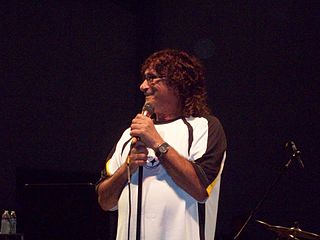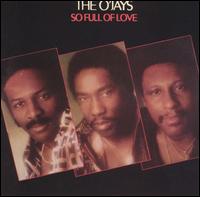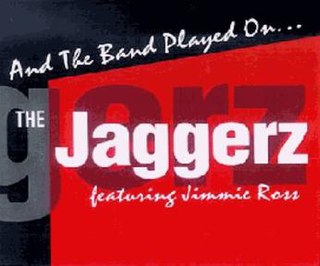MFSB, officially standing for "Mother Father Sister Brother", was a pool of more than 30 studio musicians based at Philadelphia’s Sigma Sound Studios. They worked closely with the production team of Gamble and Huff and producer/arranger Thom Bell, and backed up such groups as Harold Melvin & the Blue Notes, the O’Jays, the Stylistics, the Spinners, Wilson Pickett, and Billy Paul.

Donnie Iris is an American rock musician known for his work with the Jaggerz and Wild Cherry during the 1970s, and for his solo career beginning in the 1980s with his band, the Cruisers. He wrote the #2 Billboard hit, "The Rapper", with the Jaggerz in 1970 and was a member of Wild Cherry after the group had a #1 hit with "Play That Funky Music." He also achieved fame as a solo artist in the early 1980s with the #29 hit "Ah! Leah!" and the #37 hit "Love Is Like a Rock."

A Brand New Me is the sixth studio album by English singer Dusty Springfield, released in 1970.

Our Kind of Soul is the seventeenth studio album by Hall & Oates, released in 2004.

The Stylistics is the debut album by American R&B group the Stylistics, released in November 1971 on the Avco record label. It was produced by Thom Bell and recorded at Sigma Sound Studios in Philadelphia. The album has been called "a sweet soul landmark."
The Jaggerz are an American rock band from Pittsburgh, Pennsylvania. They came to national attention with their single "The Rapper" which was released on the Kama Sutra label. "The Rapper" was No. 1 in the Record World Charts and No. 2 in the Billboard Hot 100 in March 1970. Having sold over one million copies, the recording received a gold record awarded by the R.I.A.A..

Wanna Go Back is the eleventh studio album by rock artist Eddie Money, released in 2007. On it, Money sings cover versions of popular songs from the 1960s. His daughter, Jesse Money, performed on three tracks from the album. The title comes from Money's 1986 hit "I Wanna Go Back".

The King of Rock 'n' Roll: The Complete 50's Masters is a five-disc box set compilation of the complete known studio master recordings by American singer and musician Elvis Presley during the decade of the 1950s. Issued in 1992 by RCA Records, catalog number 66050-2, it was soon followed by similar box sets covering Presley's musical output in the 1960s and 1970s. This set's initial long-box release included a set of collectible stamps duplicating the record jackets from every Presley LP on RCA Victor, every single that had a picture sleeve, and most of his EP releases. The set includes a booklet with an extensive session list and discography, and a lengthy essay by Peter Guralnick. It peaked at #159 on the album chart and was certified a gold record on August 7, 1992, by the RIAA. Further certifications were for platinum on November 20, 1992, and for double platinum on July 30, 2002.
The Sapphires were an American pop ensemble from Philadelphia, Pennsylvania. Their sound was comparable to much of the music released on Motown in the 1960s.

So Full Of Love is a 1978 album by The O'Jays. The album contains the #1 R&B hit "Use ta Be My Girl", and was awarded RIAA Platinum Certification for sales of 1,000,000 copies.

The Wonders of His Love is the second studio album by Philip Bailey released in 1984 on Myrrh Records. This was his first gospel album peaking at No. 13 on the Billboard Top Christian Albums chart and No. 17 on the Billboard Top Gospel Albums chart.

We Went to Different Schools Together is the second album by Pittsburgh rock/pop band the Jaggerz, released in 1970. The album includes the group's only successful single, "The Rapper."

Come Again is the third album by the Pittsburgh pop/rock band the Jaggerz, released in 1975. This was the group's last album before its twelve-year (1977-1989) break-up; another album was not released for 23 years. It is also the group's last album with Donnie Iris as a performer.

And the Band Played On... is the fourth album by Pittsburgh pop/rock band the Jaggerz, released in 1998. It was their first album since their regrouping nine years earlier. It contains new recordings of songs from the group's three original studio albums.

Identify Yourself is a 1979 album by American R&B group The O'Jays, released on the Philadelphia International Records label. It was recorded at Sigma Sound Studios in Philadelphia, with four tracks produced by Kenny Gamble and Leon Huff, three by group members Eddie Levert and Walter Williams and one by the esteemed Philadelphia producer and composer Thom Bell.

Bingo! is the sixteenth studio album by the Steve Miller Band. The album was released on June 15, 2010, by Roadrunner Records and Loud & Proud.

Full Circle is the debut album of Pittsburgh rock/pop musician Jimmie Ross, best known as a member of the Jaggerz. The album, released in 2010 contains the best of his songs from the Jaggerz.

At Peace with Woman is the second album by The Jones Girls. Released in 1980, the album reached number seven on the Top Soul Albums chart.

Night Life is the second album by British R&B and soul music singer Maxine Nightingale. She is best known for her hits in the 1970s, with the million-seller "Right Back Where We Started From", "Love Hit Me", and "Lead Me On" (1979).

Reddy is the eleventh studio album release by Australian-American pop singer Helen Reddy. Between 1971 and 1978, Reddy had had ten studio albums released by Capitol Records, the label also having issued her Greatest Hits album and a concert album: Live in London, the latter issued in December 1978 - which same month Reddy filed suit claiming Capitol Records had shortchanged her $1,793,000, the suit being an apparent bid to win release from the label. However Reddy, issued in June 1979, would be released by Capitol Records, Reddy's tenure with the label extending to include her twelfth studio album: Take What You Find, issued in 1980.

















